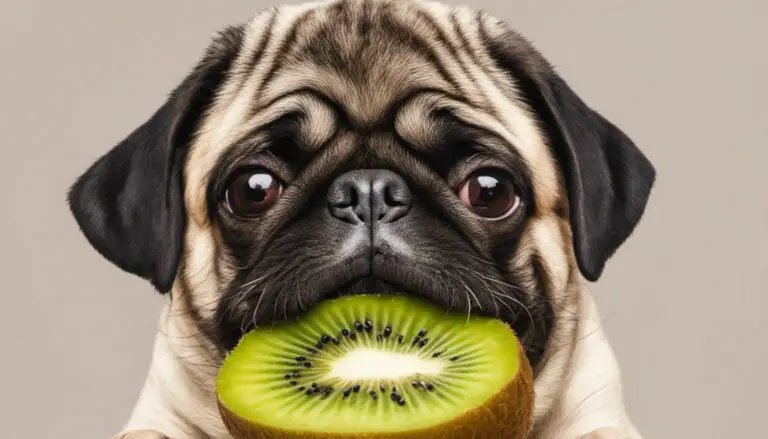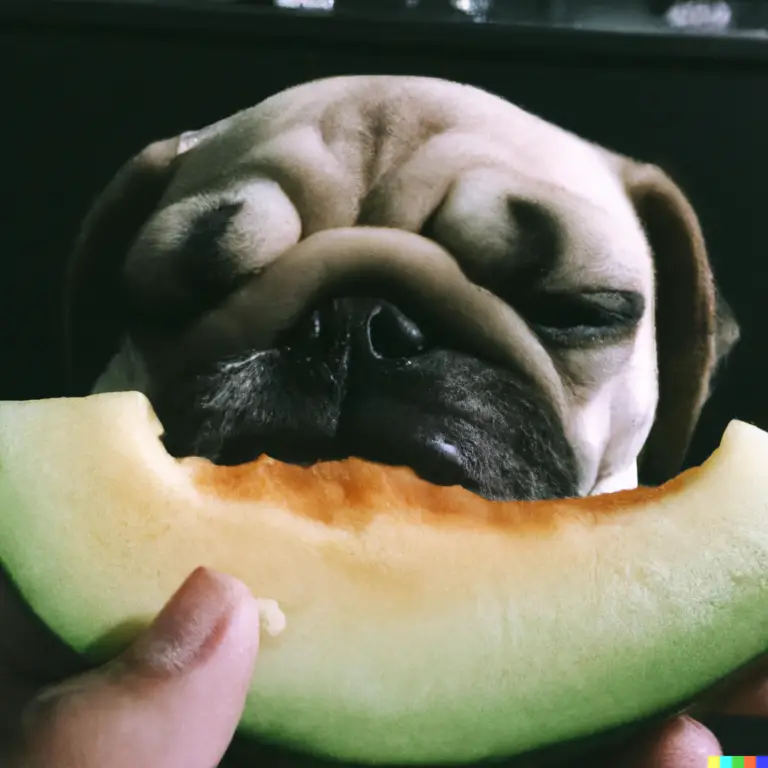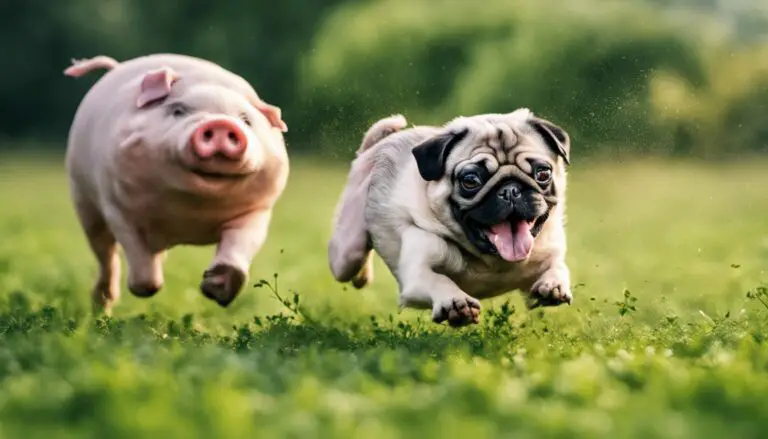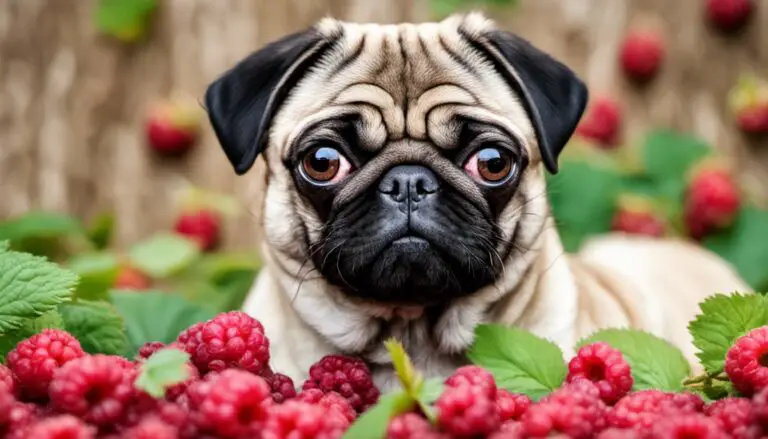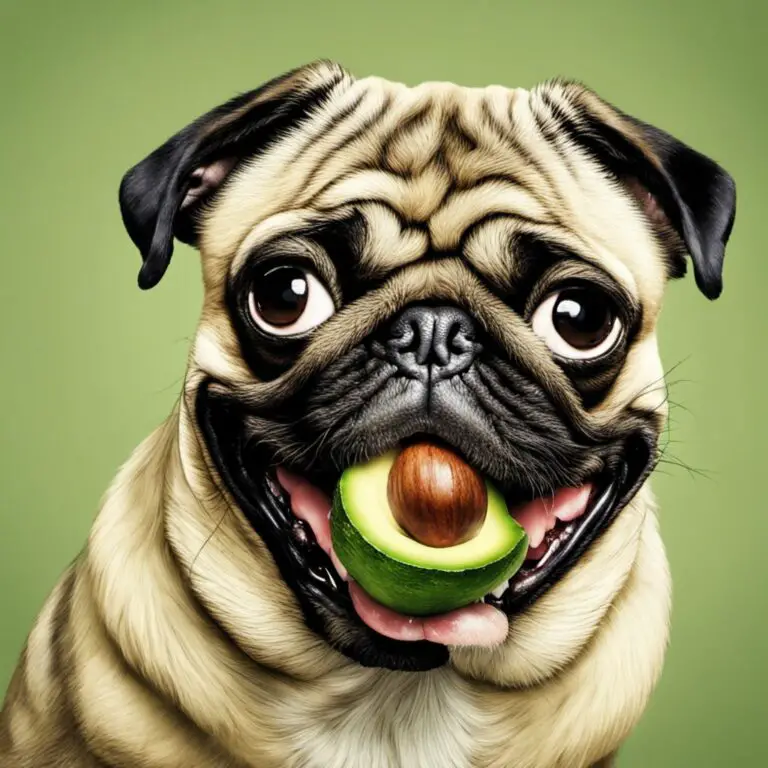Can Pugs Eat Beef? A Comprehensive Guide for Owners
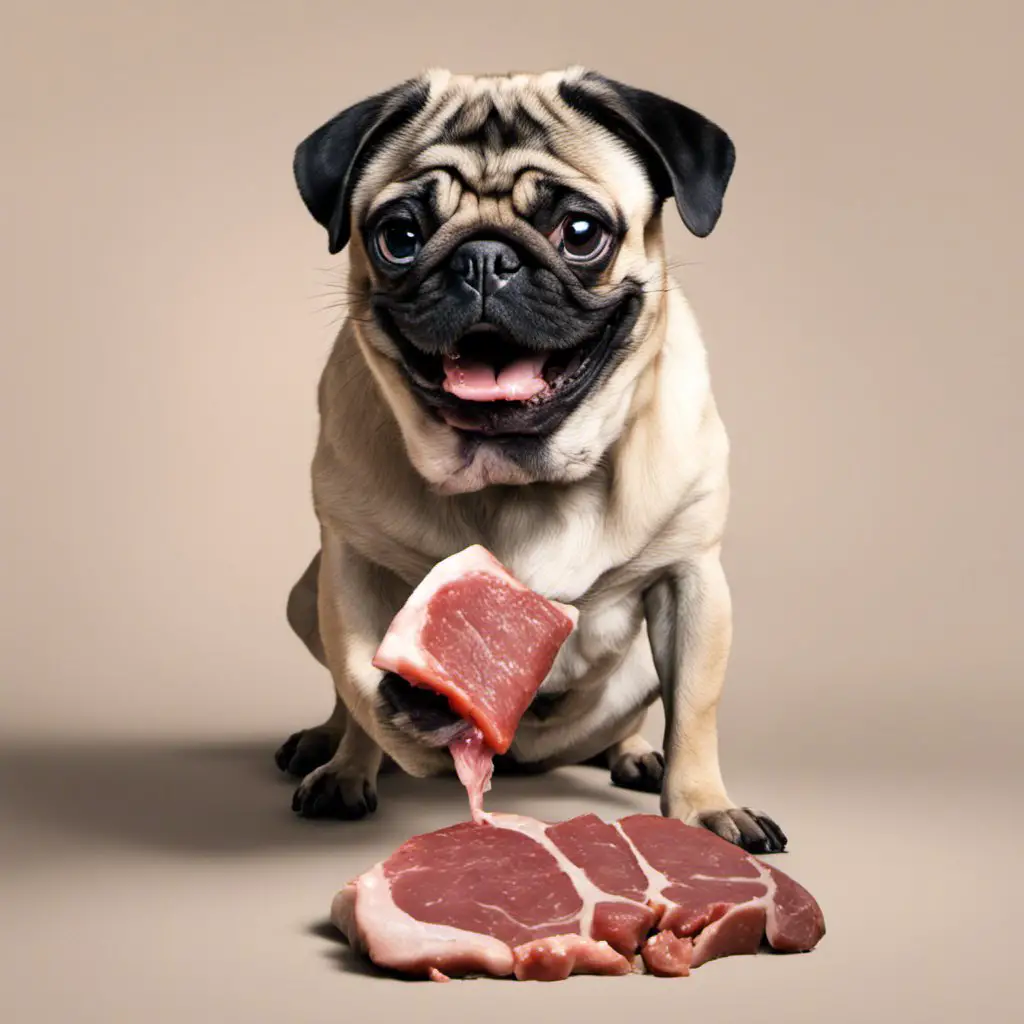
Knowing what your furry friend can and cannot eat is essential as a pug owner. One common question that arises is, “Can Pugs Eat Beef.” This article will address that question and provide useful information on incorporating beef into your pug’s diet.
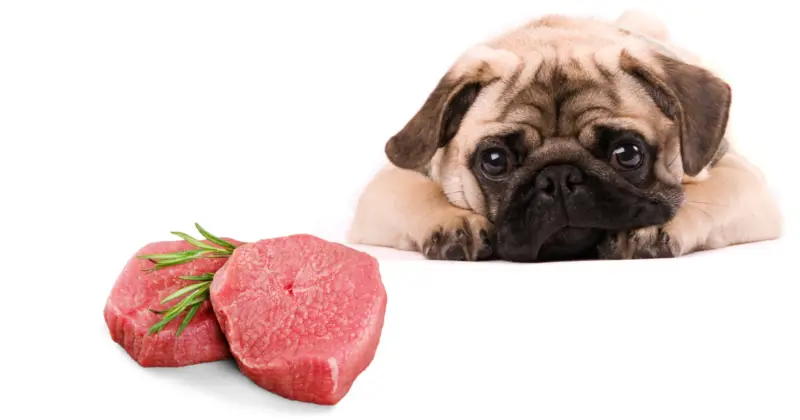
Beef is a popular choice for many dog breeds as it is rich in protein and essential nutrients. It is generally safe for pugs to consume, provided it is prepared correctly and served in moderation. When offering beef to your pug, it is crucial to remove seasonings and spices and avoid fatty cuts of meat to ensure they receive the nutritional benefits without any risks.
It is also essential to consider the diet requirements specific to pugs and how the addition of beef can impact their overall health. Pugs have unique dietary needs due to their size and physicality, so offering them beef can be a great source of protein, but remember to balance it with other dog-friendly foods and treats.
Contents
Table of Contents
The Pug Diet
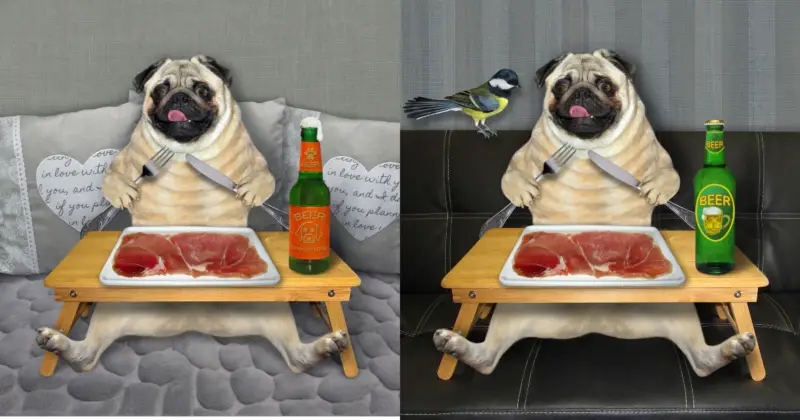
Like all dog breeds, pugs require a specialized diet to keep them healthy and happy. As a pug owner, knowing what types of food to include in their diet is essential for ensuring their well-being. Pugs can be prone to obesity, so it’s important to provide a balanced diet that meets their nutritional needs without overfeeding them.
Get The Free Food Eating Guide That Keeps My Pug Happy and Playful Even at 13 Years Old
100% Beginner Friendly & Lists Real Foods Your Pug Can Actually Eat!

Quality dog food is the foundation of a pug’s diet. Many pug owners opt for dry dog food due to its convenience and variety in flavors and formulas. Dry dog food can help maintain dental health by reducing plaque and tartar build-up. However, wet dog food is also a viable option for pugs, especially for those with dental issues or who have difficulty consuming dry kibble. Wet dog food can offer more moisture and make it easier to eat and digest.
A mix of wet and dry dog food can provide variety and a balance of nutrients in a pug’s diet. Small breed formulas are recommended, as they cater to the unique nutritional needs of smaller dogs, like pugs. While ensuring a pug consumes high-quality dog food covering their nutritional needs, it’s essential to be mindful of portion control to avoid overeating and weight gain.
In addition to dog food, pugs can enjoy certain fruits, vegetables, and lean proteins, such as beef. Beef can be a valuable source of protein and nutrients like iron, zinc, and B vitamins. When feeding pugs beef, it should be cooked thoroughly and served without any added flavorings, oils, or seasonings that may be harmful to them. Providing pugs with a moderate quantity of beef occasionally can contribute to a balanced diet.
Ultimately, every pug’s nutritional needs may vary, and it is vital for dog owners to monitor their pug’s response to different foods and adjust their diet accordingly. Consulting with a veterinarian can help pug owners make informed choices about serving beef or other supplemental foods to their pets.
Understanding Pug Nutrition
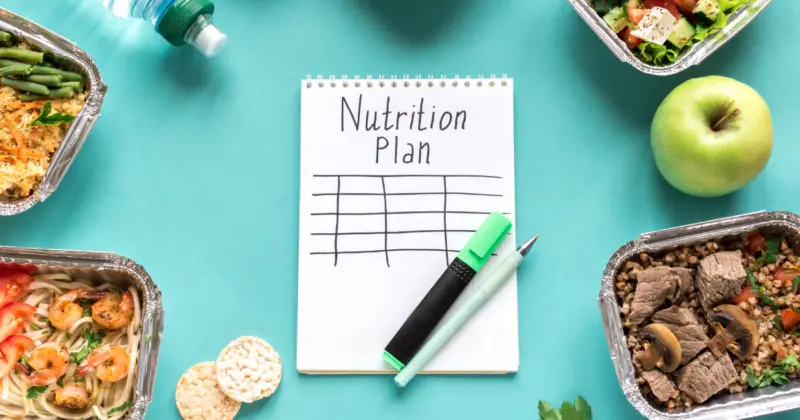
Pugs require a well-balanced diet to maintain their overall health. One of the primary components of a healthy diet for pugs is protein. In fact, a pug’s diet should contain around 18% crude protein, and protein levels in dog food should not exceed 22%, according to this source. Beef is a great source of protein that can help improve a pug’s energy levels, maintain muscle tone, and support healthy joints, as mentioned here.
In addition to protein, pugs also need an appropriate intake of fatty acids to support their skin and coat health. Adult pugs should get around 5% crude fatty acids in their diet, while puppies need approximately 8%, as per this source. The fatty acids found in beef, particularly grass-fed beef, are beneficial for pugs since they contain higher levels of omega-3s compared to regular beef.
Vitamins and minerals are crucial for pugs to thrive as well. Beef is an excellent source of essential vitamins and minerals such as vitamin A, which supports vision and immune health, and various minerals that play a vital role in different bodily functions found here. Serving cooked, unseasoned lean beef to your pug can provide these vital nutrients while also adding variety to their diet.
Lastly, fiber and antioxidants are important for pugs to maintain a healthy digestive system and to protect cells from damage caused by free radicals. While beef may not be the primary source of these nutrients, they can be found in other foods such as fruits, vegetables, and whole grains that can be included in a pug’s diet alongside lean beef for a well-rounded nutritional profile.
By understanding the nutritional needs of your pug and incorporating protein, fatty acids, vitamins, minerals, fiber, and antioxidants into their diet, you ensure that your pug stays healthy and energetic throughout their life.
Pugs and Beef

Pugs can indeed eat beef, and it is generally considered safe for them when fed in moderation. Beef can be a great source of protein for your pug, helping to support their muscle growth and giving them the energy they need for their daily activities.
However, it is important to remember that moderation is key when feeding your pug beef. Too much beef in their diet can lead to increased cholesterol levels and weight gain, which may result in health issues for your pug.
When feeding beef to your pug, choose lean cuts of meat and avoid feeding them seasoned or marinated beef, as some seasonings can harm dogs. Additionally, ensure that the beef is cooked properly to avoid any potential risks associated with consuming raw or undercooked meat.
Beef bones can be both beneficial and harmful to pugs, so it is important to exercise caution when providing them. On one hand, beef bones can be a great source of calcium and help promote dental health by removing plaque. However, cooked beef bones should be avoided as they can easily splinter and result in choking hazards or internal injuries. It is best to opt for raw beef bones or choose safer alternatives like dental chews designed specifically for dogs.
In summary, when given in moderation, beef can be a healthy and enjoyable addition to your pug’s diet. It is important to choose lean cuts, cook the beef properly, and assess the safety of offering beef bones to ensure that your pug maintains proper health and happiness.
Risks of Beef for Pugs
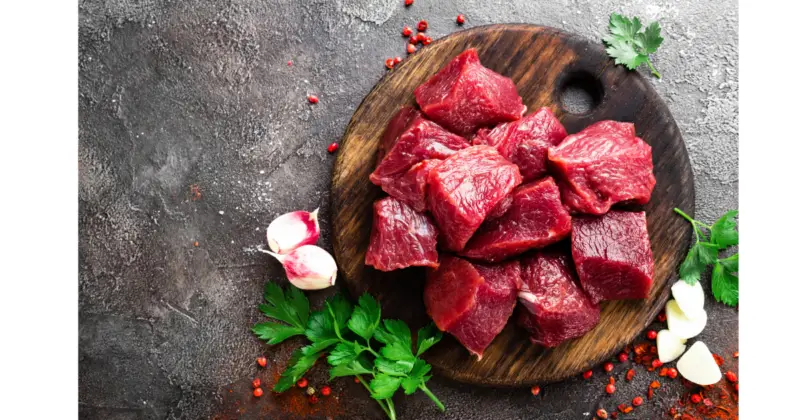
While beef can be a good source of protein for your pug, there are some risks associated with feeding them this type of meat. It’s essential to be aware of these risks and take precautions to ensure your pug stays healthy.
One potential risk comes from the salt content in some beef products. High levels of salt can lead to increased thirst, urination, and even sodium ion poisoning in dogs, which can be life-threatening. Make sure to feed your pug unsalted or low-salt beef to avoid any adverse effects.
Choking is another risk, as pugs could swallow pieces of beef that are too large or not properly chewed. To prevent this, cut the beef into small, bite-sized pieces and monitor your pug while they eat, ensuring they don’t gulp down their food too quickly.
Feeding cooked bones to your pug can also be extremely dangerous. When bones are cooked, they can become brittle and splinter, potentially causing injuries in your pug’s mouth, throat, or digestive system. Additionally, they may lead to blockages that could require surgical intervention. To avoid these issues, never feed cooked bones to your pug — stick to safe, uncooked bones or bone-free cuts of meat.
Lastly, always be cautious of potentially toxic ingredients in beef products. Some seasonings, additives, and ingredients, such as onions or garlic, can be harmful to pugs. Double-check the labels on any store-bought beef products and opt for plain, unseasoned meat to keep your pug safe.
Taking these precautions can help minimize the risks associated with feeding beef to your pug and ensure they enjoy a healthy and balanced diet.
Other Meats and Dogs
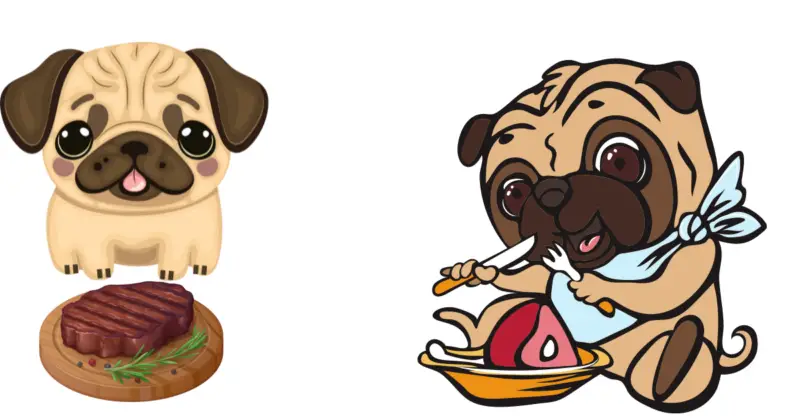
When it comes to feeding your pug different types of meat, it is important to consider the potential benefits and risks. While beef can be a good source of protein for dogs, introducing other meats may provide additional variety and nutrients.
Bacon, for example, is a popular treat amongst dog owners due to its enticing aroma and taste. However, it is essential to exercise caution when giving your pug bacon. Bacon is often high in fat and sodium content, which can lead to obesity and other health issues if consumed in excessive amounts. The best approach is to offer bacon as an occasional treat and in moderation.
Pet owners and professionals highly debate the option of feeding dogs raw meat. Advocates argue that a raw meat-based diet is more natural and can reap various benefits, such as improved dental health and skin conditions. However, raw meat may carry bacteria like Salmonella or E. coli, posing a risk of foodborne illness to your pug and your family. Additionally, pugs have sensitive digestive systems, making them more susceptible to raw meat issues.
As for other types of meat like chicken, turkey, and fish, these can be suitable alternatives to beef for your pug. It is crucial to ensure that the meat is cooked thoroughly and any bones are removed to prevent choking hazards or digestive problems. When creating your pug’s meal plan, it’s important to balance the protein sources with other essential nutrients such as carbohydrates, fruits, and vegetables.
In conclusion, incorporating various meats into your pug’s diet can provide diversity and further nutritional benefits. It is vital to be aware of the potential risks and make informed decisions when introducing these meats to your pug. Always consult your veterinarian for personalized advice on your dog’s dietary needs.
Fruits and Vegetables Pugs Can Eat
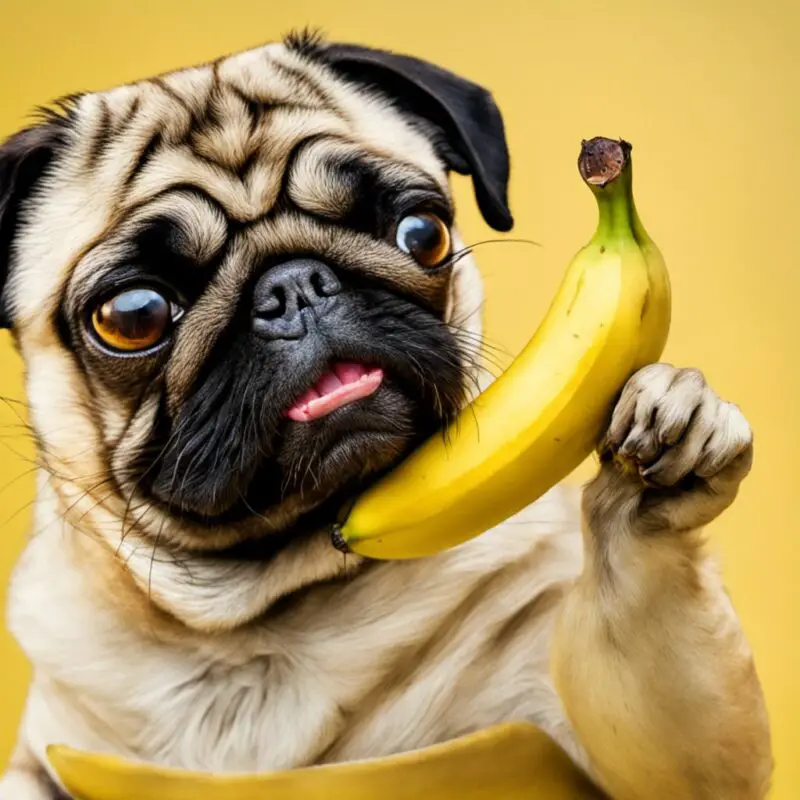
Pugs can enjoy a variety of fruits and vegetables in their diet, which can provide essential vitamins and minerals for their overall health. Some of the fruits and vegetables that are safe for pugs to consume include:
- Carrots: These are a great source of vitamins, minerals, and fiber, making them a healthy snack for pugs. They can be served raw or cooked, but cutting them into bite-sized pieces is essential to avoid choking hazards.
- Berries: Pugs can enjoy a variety of berries, such as blueberries, strawberries, and raspberries, which are rich in antioxidants and can help support their immune system.
- Bananas: These fruits are an excellent source of potassium and vitamin C, and they can make a great treat for pugs when given in moderation.
- Mango: Packed with vitamins and minerals, mango can be a delicious and nutritious treat for pugs. However, it’s important to remove the skin and pit before feeding.
- Green Beans: Green beans can be a fantastic addition to a pug’s diet, rich in vitamins and fiber. They can be served raw or cooked, but make sure they are chopped into small pieces.
- Spinach and Kale: Packed with essential nutrients like vitamins A, K, and C, these dark leafy greens can be an excellent supplement to a pug’s diet. However, serving in moderation is essential due to their high oxalate content.
- Oranges, Cantaloupe, and Apples: These fruits can be a refreshing and hydrating snack for pugs. Be sure to remove any seeds and peels before serving.
It’s important to note that some vegetables, such as green tomatoes and onions, should not be given to pugs, as they can be toxic. Furthermore, pugs should always be hydrated after consuming fruits and vegetables to help them digest the additional fiber in their diet.
Dangerous Foods for Pugs
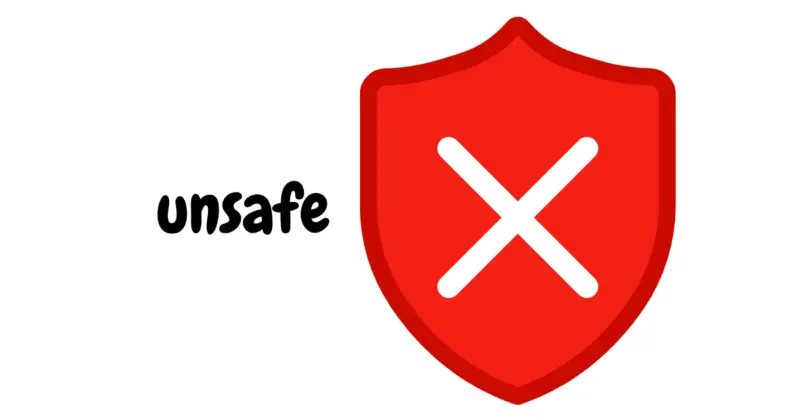
Pugs, like all dogs, have certain foods that are dangerous for them to consume. As a responsible pet owner, it’s important to be aware of these dangerous foods and prevent your Pug from ingesting them.
Chocolate is a well-known toxin for dogs in general, including Pugs. Its compounds, such as theobromine and caffeine, can lead to various health issues, including irregular heartbeats, seizures, and even death.
Onions, garlic, leeks, and chives are all part of the Allium family and should also be avoided as they’re poisonous to Pugs. These foods can cause gastrointestinal irritation and may lead to red blood cell damage in larger amounts.
Avocados contain a toxin called persin, which can be harmful to Pugs. Ingestion of this fruit can cause vomiting and diarrhea in dogs.
Grapes and cherries should be avoided as they can cause rapid kidney failure in dogs. This can lead to lethargy, loss of appetite, and eventually death.
Macadamia nuts are another harmful food for Pugs. They can lead to weakness, vomiting, tremors, and fever when consumed by dogs.
Caffeine can cause rapid breathing, restlessness, vomiting, and seizures in Pugs. It’s important to keep them away from coffee, tea, and other caffeine-containing products.
Xylitol, a sugar substitute often found in gum, candies, and some baked goods, can be deadly for Pugs. Ingestion can lead to a sudden release of insulin, causing hypoglycemia (low blood sugar), seizures, and even liver failure.
Lastly, raw potatoes and other members of the nightshade family can also be harmful to Pugs. Solanine, a toxin found in raw potatoes and their peels, can lead to vomiting, diarrhea, and in severe cases, neurological issues.
Dairy and Pugs: The Facts
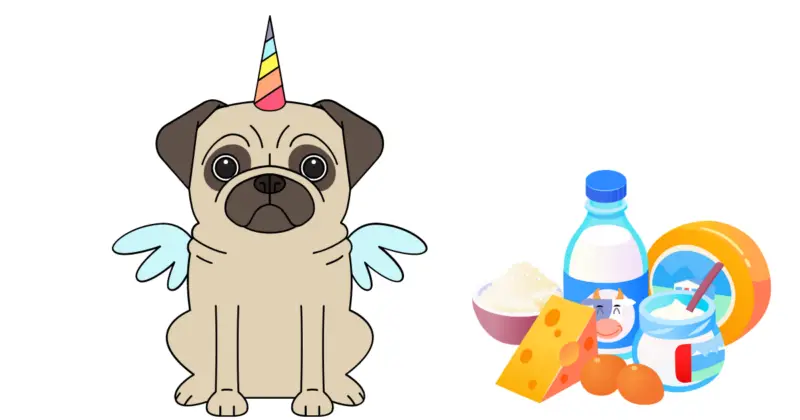
Pugs can consume certain dairy products, such as cheese, in moderation. Cheese can be a tasty treat or even a motivational tool during training sessions. However, it’s essential to understand the potential risks and benefits associated with dairy consumption for pugs.
First and foremost, some pugs may be lactose intolerant or have trouble digesting dairy products. If your pug shows signs of upset stomach, diarrhea, or vomiting after consuming dairy, it could indicate lactose intolerance, and it’s best to avoid feeding your pet these foods.
While cheese can be a suitable treat for pugs, you should opt for low-fat options, as high-fat cheese can lead to weight gain and obesity. Pugs are prone to obesity, so it’s crucial to monitor their calorie intake and ensure they receive regular exercise.
In addition to cheese, milk, and yogurt are also popular dairy products you might consider giving your pug. Again, moderation is key, and you’ll need to make sure your pug tolerates these products without any adverse reactions. Opting for plain, unsweetened yogurt is a good choice as it avoids unnecessary sugar content.
It’s essential to be mindful of dairy products with added ingredients, such as flavored yogurt and processed cheese products, which may contain harmful substances or allergens. Always read labels carefully and consult your veterinarian if you’re unsure whether a particular product is suitable for your pug.
In conclusion, while pugs can enjoy certain dairy products in moderation, it’s important to consider their individual tolerance and choose lower-fat options when possible. Always be mindful of the ingredients and consult with your veterinarian to ensure you’re providing your pug with the best possible diet.
Health Risks of Overfeeding
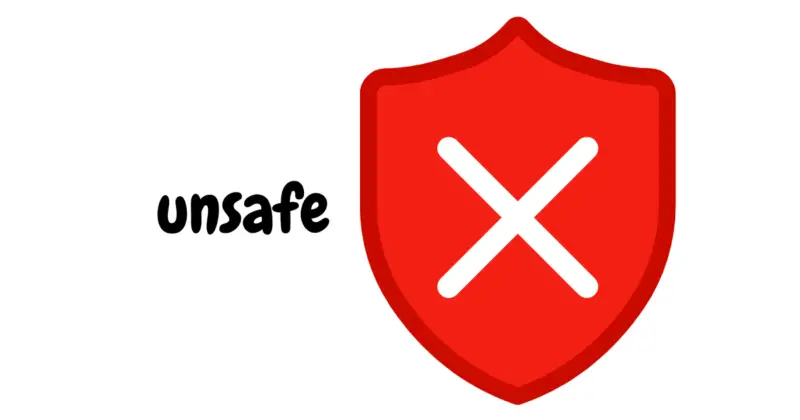
Feeding your pug excessive amounts of beef can lead to several health issues. One of the primary concerns that dog owners need to be aware of is the risk of obesity. Pugs are already among the highest-risk breeds for obesity, so carefully controlling their food intake is crucial for maintaining their health.
Overfeeding your pug can result in them becoming overweight or even obese. This can, in turn, lead to various health problems such as arthritis, diabetes, and heart disease. Additionally, overweight and obese dogs may experience reduced mobility and overall quality of life.
Feeding too much beef to your pug can also lead to gastrointestinal problems. Common symptoms include diarrhea and vomiting. These can be particularly concerning as they may lead to dehydration and other complications if not managed promptly.
Moreover, an overfed pug may develop pancreatitis, a potentially life-threatening condition where the pancreas becomes inflamed. The inflammation is often caused by feeding dogs rich, fatty foods like beef, especially in large quantities. Symptoms of pancreatitis in pugs include vomiting, diarrhea, abdominal pain, and lethargy. Immediate medical intervention is necessary to treat this condition.
In conclusion, it is essential to monitor your pug’s dietary intake to avoid overfeeding them beef, as it can lead to several health risks, including obesity, gastrointestinal issues, and pancreatitis. Responsible and balanced feeding is crucial to ensure the health and well-being of your beloved pet.
Serving Size and Frequency
Introducing beef to your pug’s diet can be both enjoyable and nutritious for them. However, it’s essential to keep in mind the proper serving size and frequency when feeding beef to your pug.
When feeding beef to your pug, moderation is crucial. Start by offering small portions of cooked, unseasoned beef as a treat, in addition to their regular dog food. Pugs are prone to weight gain, so ensure that the amount of beef provided doesn’t exceed 10% of their daily caloric intake.
Gradually incorporate new foods like beef into your pug’s diet to avoid any digestive upsets. As their system adjusts, you may increase the quantity and frequency of beef servings. A common suggestion is to feed your pug beef in appropriate portions once or twice a week. For example, a third of a cup of cooked, lean beef can be mixed into their regular diet or given as a treat.
When serving beef to your pug, consider offering them lean meat cuts, such as sirloin or round steak. Fatty and processed meat should be avoided, as pugs can be sensitive to excess fat and salt.
In summary, when introducing beef into your pug’s diet, remember to be attentive to serving size and frequency. Start with small portions, practice moderation, and keep their overall health and nutritional needs in mind.
Can Pugs Eat Beef? Which Type of Meat Is Best For Dogs? Watch this
Snacks and Treats for Pugs
Pugs, like other dogs, enjoy a variety of snacks and treats as long as they are safe and healthy for them. In addition to their regular diet of dry or wet food, consider offering some of the following options:
Fruits and Vegetables: Some fruits and vegetables can be great snacks for Pugs and offer various nutrients. Consider giving them pieces of apple, carrot, or cucumber. However, avoid giving them corn, as it can be challenging for them to digest.
Dog Treats: Look for single-ingredient dog treats, such as dehydrated liver, beef, chicken, or fish. It is important to avoid treats made in China or containing multiple ingredients, as they can be harmful to your pet [source].
Bones: While bones can be a good source of nutrition and a means to keep their teeth clean, choosing the right kind of bones is important to avoid any health risks. Stick to smaller, softer bones, as rawhide bones can be dangerous for pugs.
Seeds: Some seeds can be introduced to your Pug’s diet but in moderation. Chia seeds, for example, are considered a superfood and can provide various health benefits. However, it is essential to monitor your pug for any allergic reactions.
Human Foods: Although not all human foods are suitable for pugs, some can be shared as occasional treats. Cooked, unseasoned, lean meats such as chicken or turkey can be given in small amounts. Avoid giving them any high-fat or heavily seasoned foods.
Homemade Treats: If you prefer to make your own treats for your Pug, consider baking some dog-safe biscuits or preparing a batch of homemade wet food with lean meats, vegetables, and grains. Make sure to avoid any ingredients that could be harmful to your Pug.
By offering a variety of snacks and treats to your Pug, you can contribute to their overall health and happiness while also bonding with your furry friend through positive reinforcement and training rewards. Always monitor your Pug when introducing new foods and consult with your vet if you are unsure about any particular snack.
Understanding Food Labels
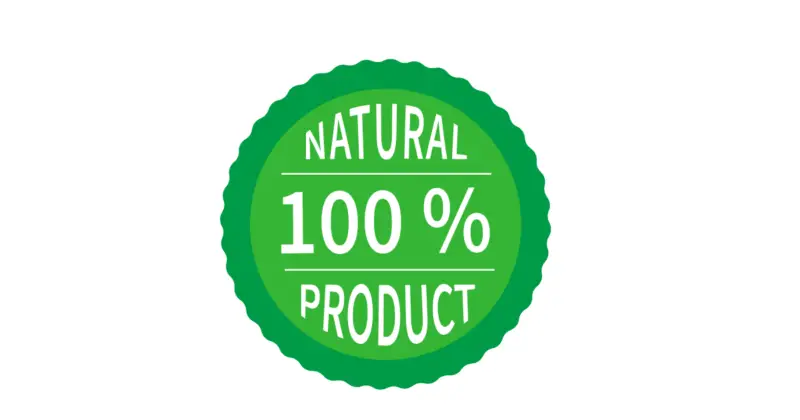
When choosing beef-based food for your pug, it’s essential to understand the food labels. Food labels can provide information on the key ingredients and nutrients vital for your pug’s health, such as protein, calories, fatty acids, antioxidants, fiber, and sugar content.
When examining the label, consider the protein source, which should be a high-quality beef ingredient. Protein is crucial for your pug’s overall health and muscle development. Look for the mention of real beef or a specific meat meal like “beef meal” on the label, as these are considered quality sources of animal protein.
Calories are another factor to consider when selecting food for your pug since they can quickly gain weight due to their small size. Food with balanced calories can help maintain a healthy weight for your pug. Check the caloric content at the back of the package and adjust the portion size according to your pug’s age, weight, and activity level.
Fatty acids, such as omega-3 and omega-6, are important for your pug’s skin and coat health and their immune system. Look for labels that mention the presence of these fatty acids in the ingredients list or guaranteed analysis.
Antioxidants are vital for maintaining your pug’s immune health. Many high-quality dog foods include antioxidants from natural sources such as fruits and vegetables. Check the ingredient list for whole food sources of antioxidants, such as blueberries, spinach, or sweet potatoes.
Fiber content is essential for your pug’s digestion and overall gut health. Look for ingredients like sweet potatoes, brown rice, or barley, which are healthy sources of fiber. Avoid foods with an unusually high amount of sugar, as sugar can lead to obesity and other health issues in pugs.
In summary, understanding food labels is crucial for selecting beef-based food that meets the nutritional needs of your pug. By paying attention to protein sources, calories, fatty acids, antioxidants, fiber, and sugar content, you can ensure your pug receives a well-balanced, healthy diet. Remember to keep an eye on the FDA guidelines for dog food labels to ensure you’re making an informed decision when selecting food for your pug.
Special Considerations for Pugs
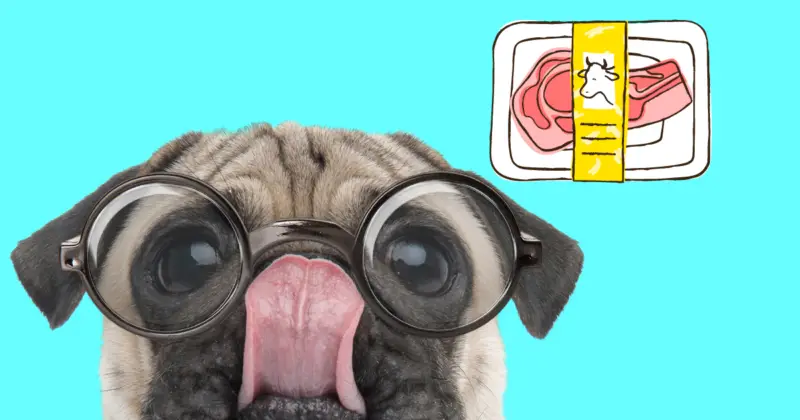
When feeding beef to pugs, it is crucial to keep in mind their specific dietary needs and potential health issues that may arise. Beef can be a great source of protein and nutrients that support your pug’s immune system, but moderation and safety should always be a priority.
Firstly, ensure the beef you give your pug is plain and without any seasonings or additives. As pan-fried, seared, or grilled beef is preferable, avoid adding salt, pepper, or other spices that can be harmful to your pug. Also, try to remove any excess fat, as it can lead to obesity in pugs, which is already a prevalent issue due to their small stature.
While beef provides your pug with essential proteins, balancing their diet with other nutrients is important. Fruits and vegetables can serve as healthy alternatives or supplements for pugs. For instance, carrots are high in fiber and beta-carotene, which can support their digestion and overall health. Conversely, Spinach is packed with potassium, which helps maintain fluid balance, muscle function, and nerve signaling. Just remember to serve them in moderation.
Pugs, a small breed, tend to develop dental problems due to crowded teeth. Feeding them smaller pieces of beef and choosing dry dog food formulated for small breeds can help prevent dental issues. Kibble should have the right amount of calories and fat and an appropriate size to avoid damaging their teeth.
Can Pugs Eat Beef? In summary, pugs can enjoy beef as part of a balanced diet, but it is essential to be mindful of their specific needs and health conditions. Providing them with plain beef in appropriate portions and various fruits and vegetables can ensure they receive the right balance of proteins, vitamins, and minerals to maintain a healthy immune system and overall well-being.
FAQs: Can Pugs Eat Beef
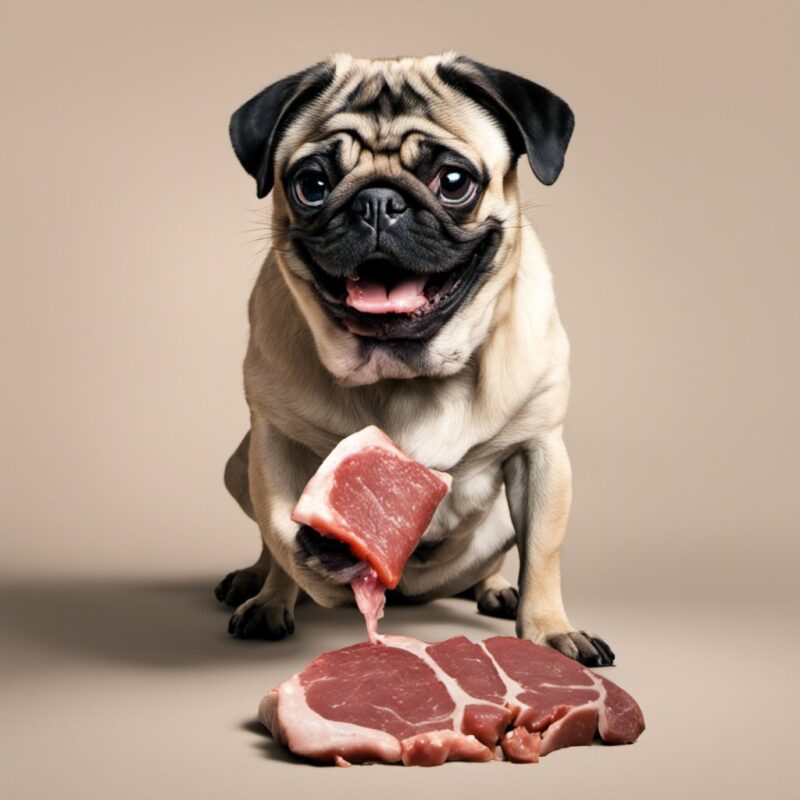
Can cooked beef be safely fed to pugs?
Yes, cooked beef can be safely fed to pugs, as long as it is prepared without any harmful ingredients like garlic, onions, or excessive salt. It is important to make sure the beef is cooked thoroughly to eliminate any possible bacteria. The lean cuts of beef are better for your pug, as they contain less fat and are easier to digest.
Should pugs consume beef bones?
Pugs should not be given large beef bones, as they can pose a choking hazard and splinter, causing injury to the digestive system. However, some chews like beef bone, rawhide, and pig ears can be provided in moderation to satisfy their chewing needs and help maintain dental health.
Is ground beef suitable for pugs?
Ground beef can be suitable for pugs, especially if it’s lean and cooked thoroughly. However, it is essential to avoid adding any spices or ingredients that could be harmful to the pug. Ground beef can be mixed with other dog-friendly foods like vegetables and whole grains to provide a balanced and nutritious meal.
What is the best way to prepare beef for pugs?
The best way to prepare beef for pugs is to keep it plain and simple. Grilled, pan-fried, or seared beef without seasonings like salt, pepper, or olive oil is ideal. Ensure it is cooked to at least medium level, as this will help to keep your pug safe from any harmful bacteria. The plain and well-cooked beef can be cut into small, bite-sized pieces for easy consumption.
Are there any risks in feeding beef fat to pugs?
Feeding beef fat to pugs can pose risks, as it has a high-fat content that can contribute to obesity and other health issues like pancreatitis. It is best to stick to lean cuts of beef and avoid giving your pug excessive amounts of beef fat or any other high-fat foods.
Is beef jerky appropriate for pugs?
Beef jerky is not recommended for pugs, as it is typically high in sodium and may contain spices or preservatives that could be harmful to your pet. Instead, consider giving your pug healthier treat options like small pieces of fresh, plain cooked beef, or other dog-friendly treats specifically designed for canines.

